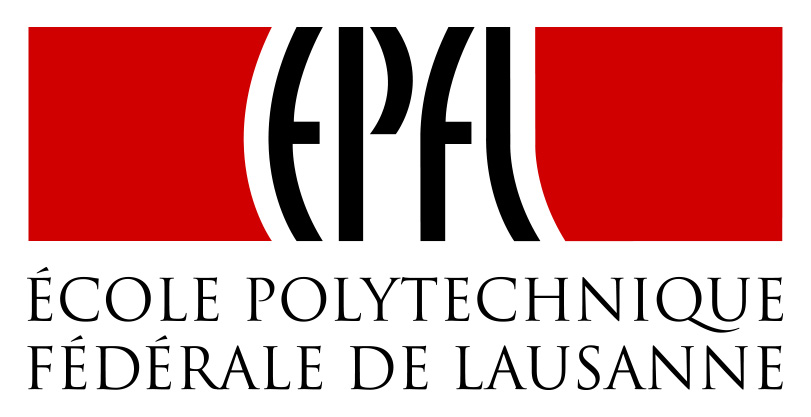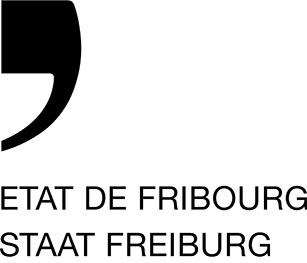editorial


For the smart living lab, 2017 was certainly the year of international take-off, as well as marking the development of a true network.
First of all, Swiss participation in the international Solar Decathlon in the United States was a unique opportunity to present the knowledge and know-how of Fribourg’s smart living lab. Switzerland’s victory demonstrated the validity of the NeighborHub concept as a model of sustainable housing. The smart living lab was created from scratch in 2014. From there it grew into a consolidated academic alliance between the EPFL, the Fribourg School of Engineering and Architecture (HEIA‐FR) and the University of Fribourg. The smart living lab set up an inter-institutional team, built a consortium of more than 40 public and private partners, and developed facilities for students and professors to design, build, unbuild, and ship a solar-powered prototype to the United States. Winning the competition, and in particular the energy, engineering, and architectural contests, was a great reward for all of the people involved in this groundbreaking project.
Secondly, 2017 was decisive for promoting the research carried out for the smart living lab’s future building among numerous national and international publications.
Thirdly, 2017 provided an opportunity to develop numerous new interdisciplinary and collaborative projects, stimulated by the presence of a growing number of researchers within the smart living lab. The new activity report contains a list of projects, presented according to research domains and groups, as well as details about funding sources and private partnerships.
Projects include demonstrators, research and educational projects, and social and behavioral studies, plus the development of new processes and methods. Many of them include collaborations with private partners such as electricity providers, lighting manufacturers, architects, energy and life-cycle analysis experts, start-ups, and general contractors. May the future still hold decisive new partnerships for the smart living lab and its research on the architectural environment of tomorrow!
Etienne Marclay, EPFL Vice-President, and Olivier Curty, Cantonal Councilor
Co-chair of the Joint Steering Committee of the smart living lab
smart living lab at a glance
The smart living lab is a research and development center for the built environment of the future, whose aim is to achieve energy efficiency, digital transformation, and the well-being of its users. Here, interdisciplinary research projects are pursued with experiments carried out in real-life conditions. These activities involve researchers, users and companies. The smart living lab brings together the combined expertise of the Swiss Federal Institute of Technology Lausanne (EPFL), the School of Engineering and Architecture of Fribourg (HEIA-FR/HES-SO), and the University of Fribourg (UNIFR) in research areas such as construction technologies, well-being and behaviors, interactions and design processes, and energy systems.
The smart living lab has been housed at the blueFACTORY site in Fribourg since the end of 2015. The construction phase for the new smart living lab’s building is slated for 2020. While awaiting the final building, our research teams will maintain their offices in the blueFACTORY’s Blue Hall.
research highlights
research domains
In 2017, the Scientific Commission refined its Academic Plan, identifying four key research domains within the smart living lab:

well-being and behaviors
Improve human health and comfort by optimizing indoor environmental quality and influencing behaviors in a positive way.

construction technologies
Monitor resource efficiency and accelerate processes of change in construction.

interactions and design processes
Understand and structure dialogue among stakeholders in the building lifecycle to develop the tools to design, model and operate buildings.

energy systems
Develop smart energy-efficient systems and technologies, improve their management, and anticipate legal and economic impacts.
The smart living lab will thus bring significant input on the technical, societal, and economic challenges facing the development of the built environment.
research projects


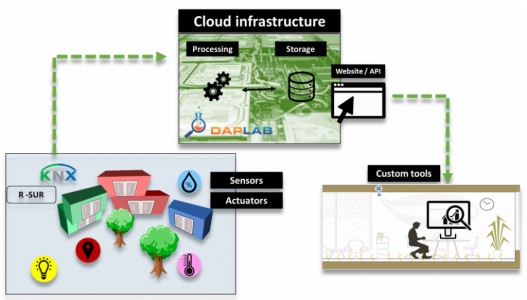

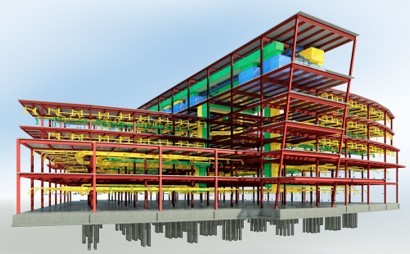

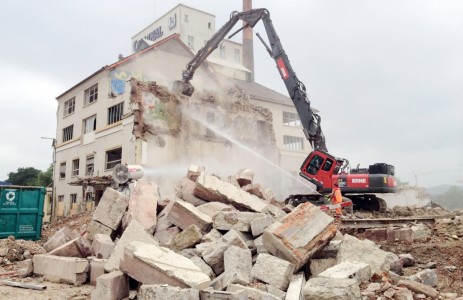



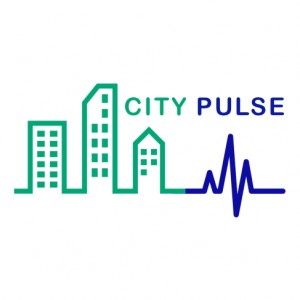

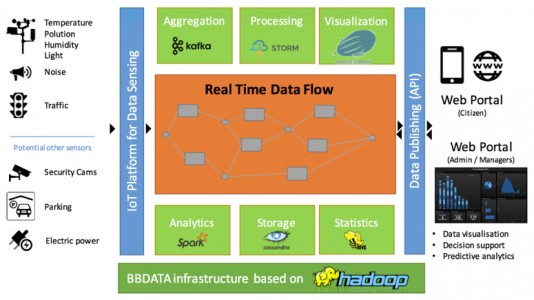
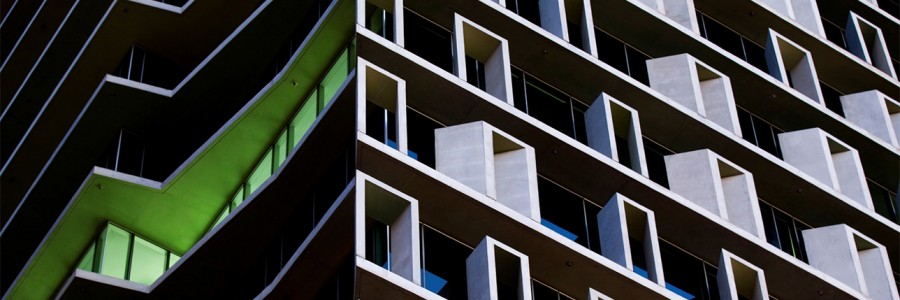



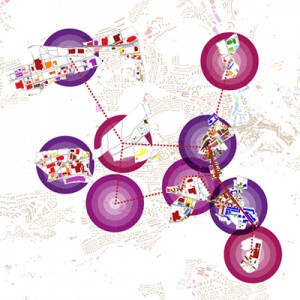

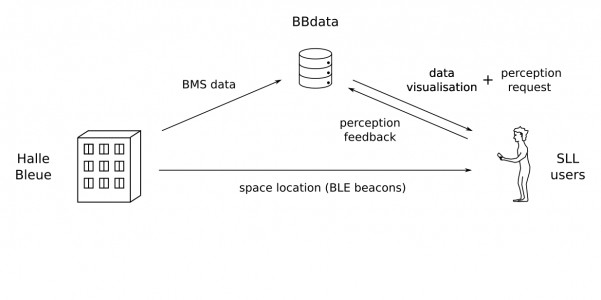



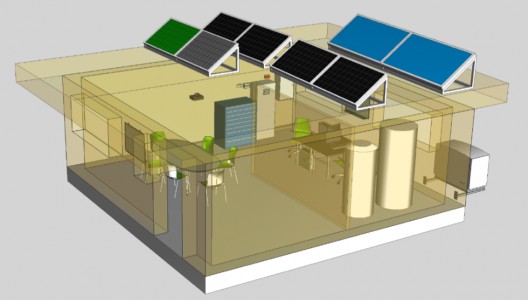

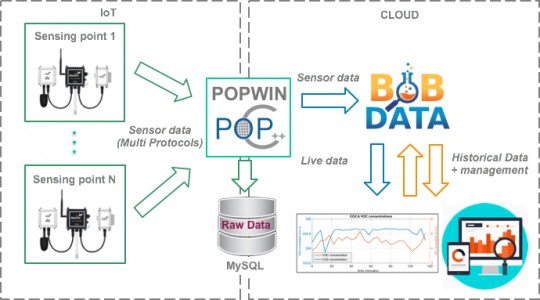

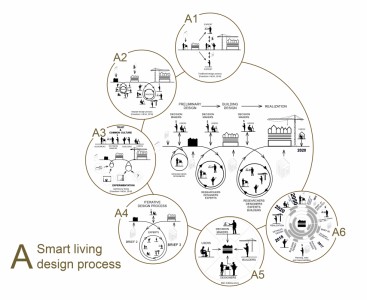

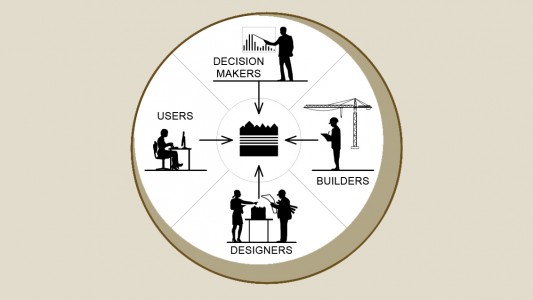
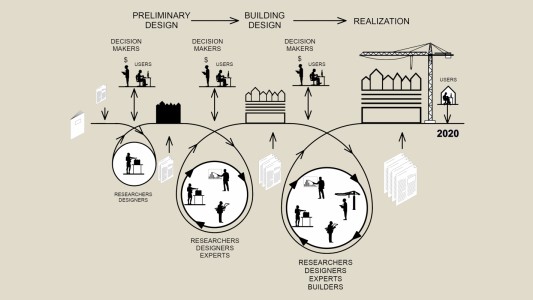





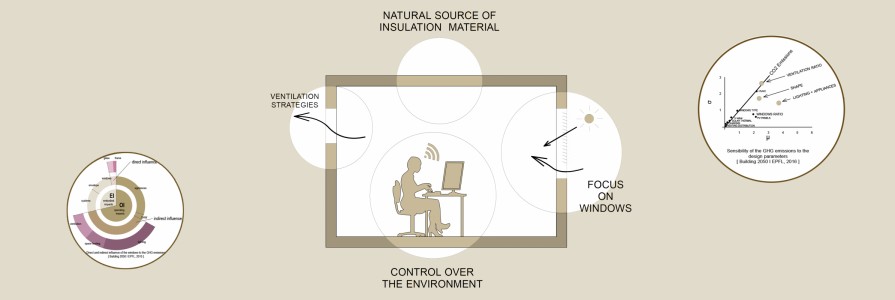


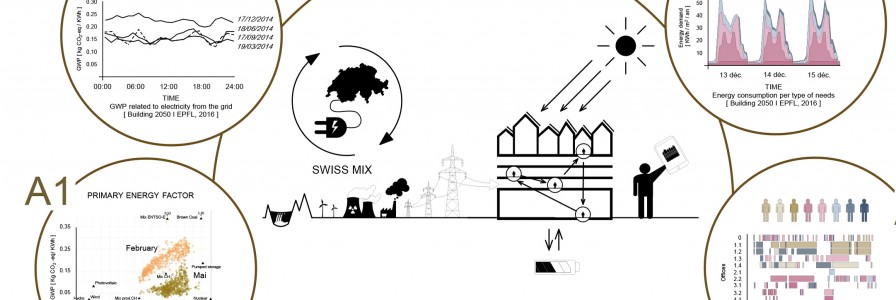


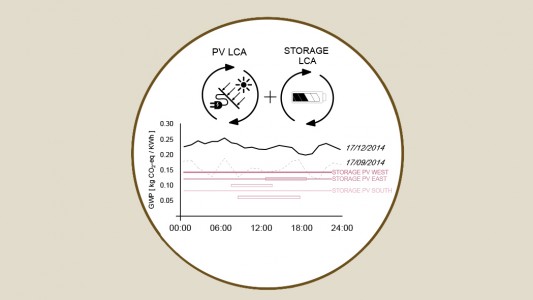
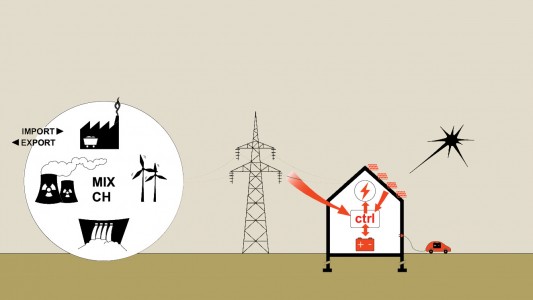
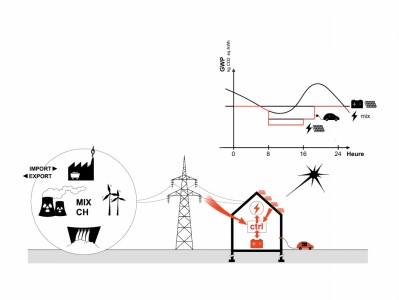


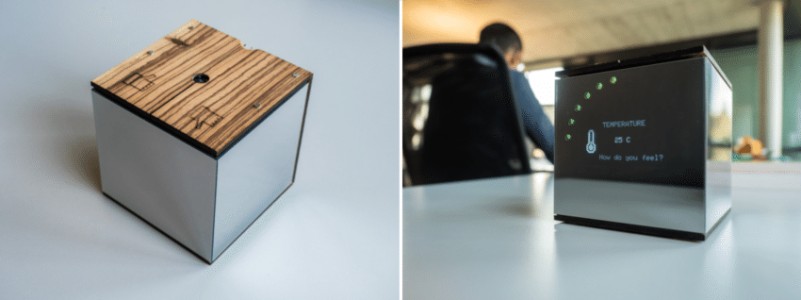

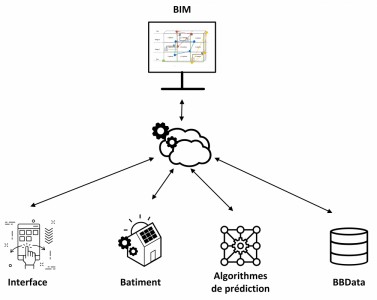

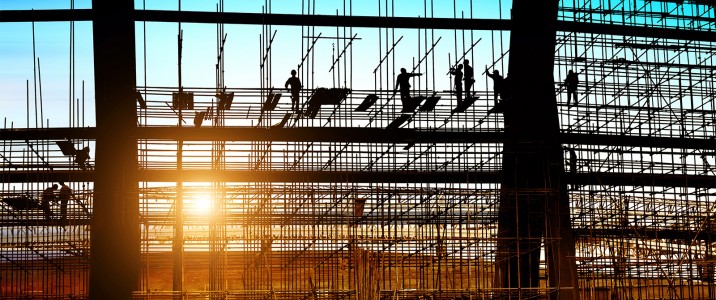

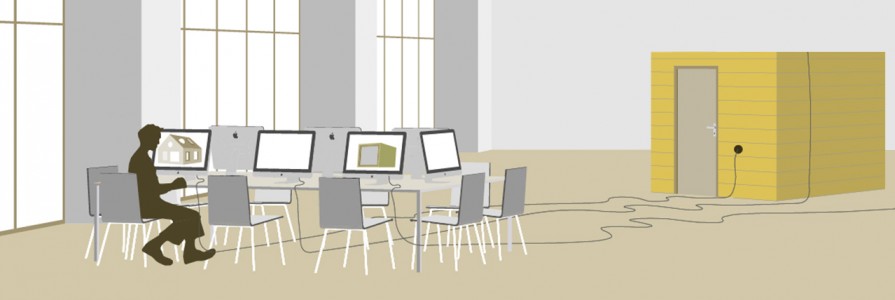




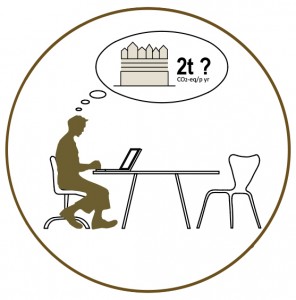


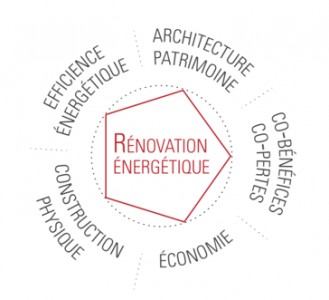

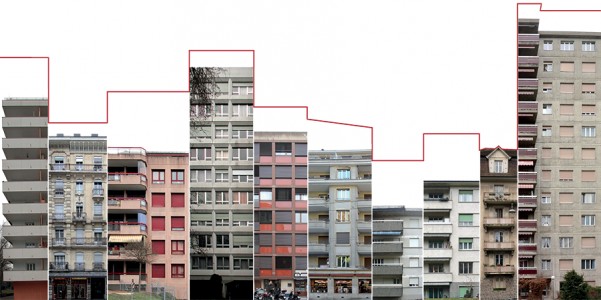

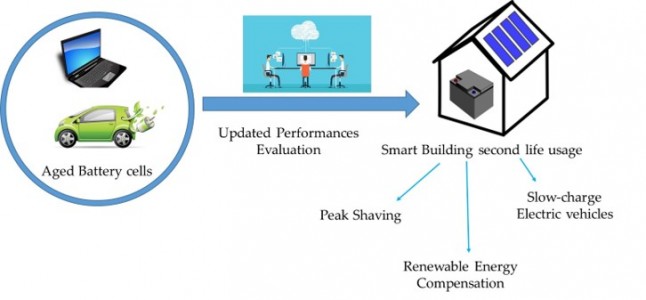



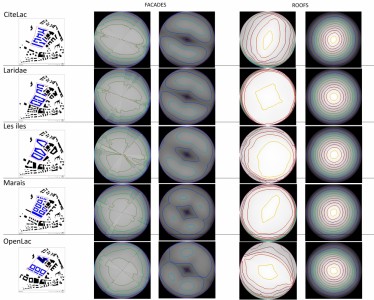

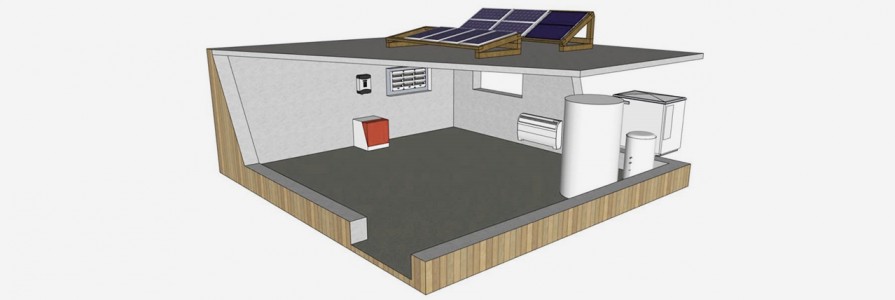


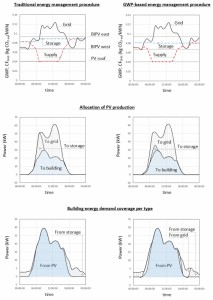


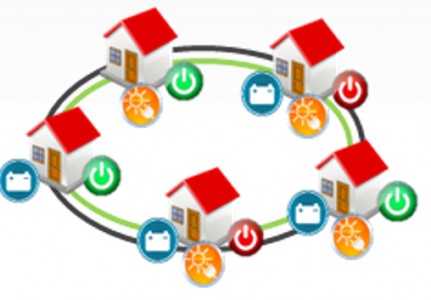

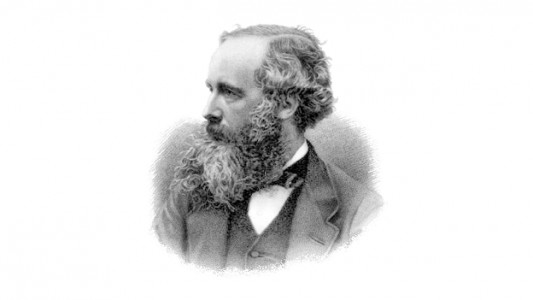

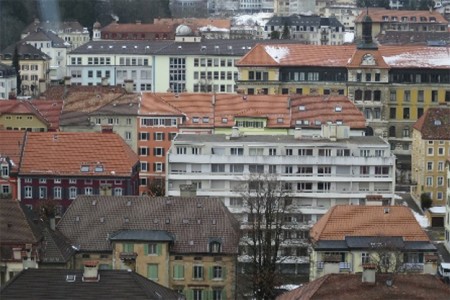

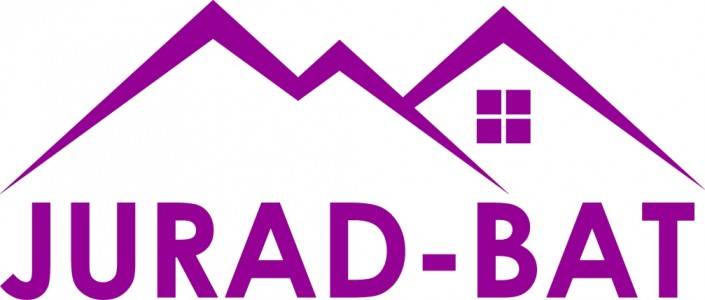

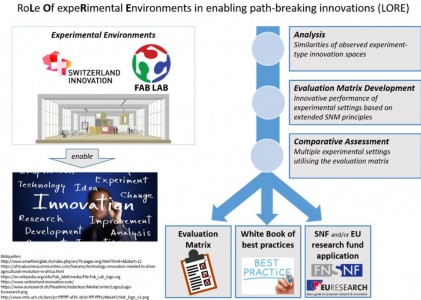

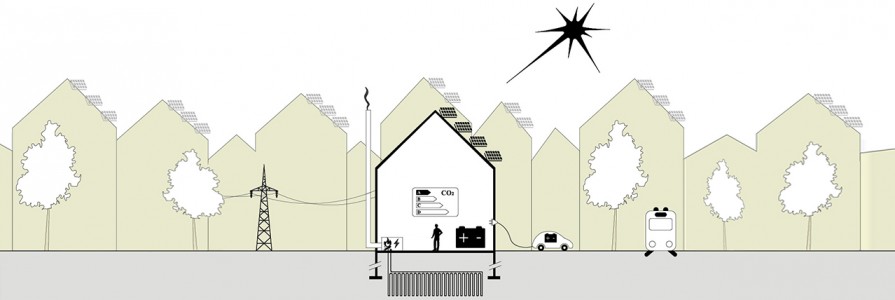



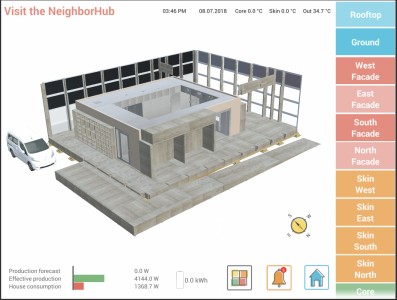









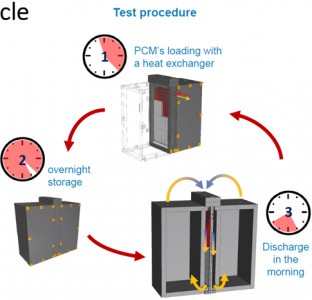



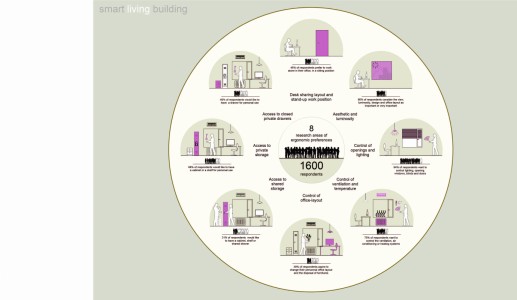

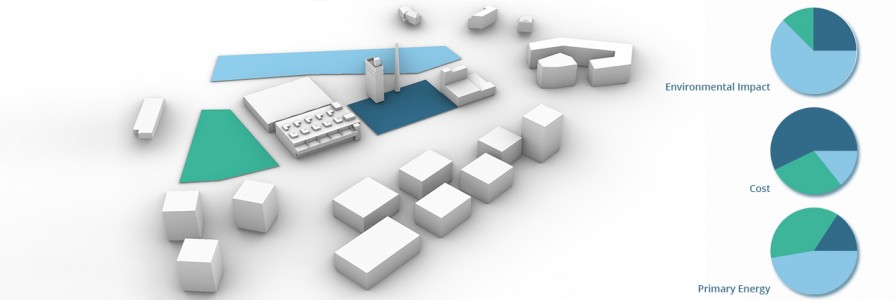

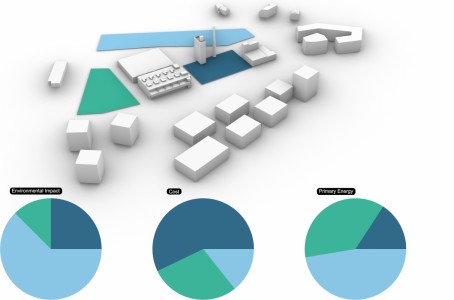


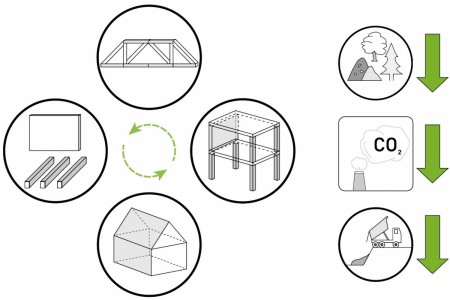




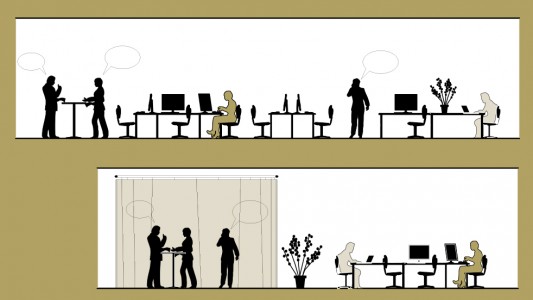
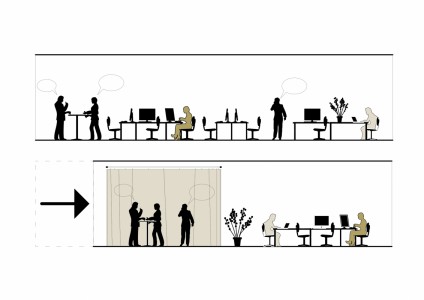
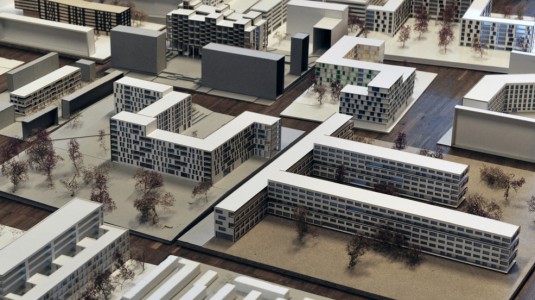

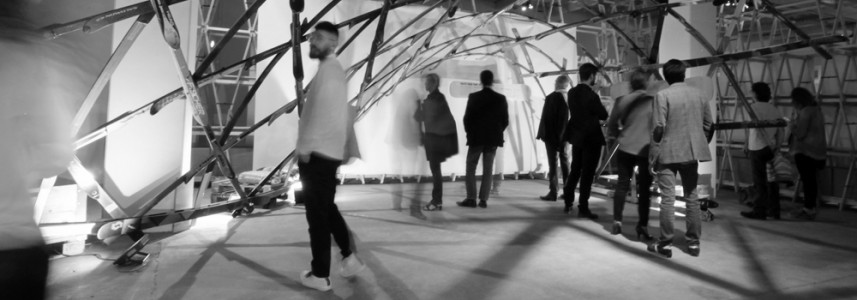

flagship projects
NeighborHub – The Swiss solar house
smart living lab’s future building
Through the smart living lab, the three institutions will pursue a common goal: to provide a unique platform for research and innovation on the most topical and exciting questions pertaining to the future of the built environment. They have a bold strategy to make this a tangible reality: to design and construct a versatile building to be used by researchers from many different disciplines. The new building will embody this future and that will serve as a test bed for exploring ways to go one step further. This building will be the future home of the smart living lab and will become a suitable site for work carried out under real conditions.
A specific research program was designed to meet the ambitious goals set between 2014 and 2016. This program was based on the assumption that, at the time of its construction in 2020, the building must meet the 2050 objectives fixed by the 2000-Watt Society. These objectives, linked to the building’s environmental impact, must be met 30 years ahead of time, without diminishing either user comfort or architectural quality.
2017 has mainly been devoted to promoting the program through several presentations at various international conferences and publications in the scientific field, thus enhancing the project’s worldwide reputation. Two books are being prepared and will be published early in 2019 by Parkbooks. Moreover, the conclusions and tools developed in these books have been integrated into the building’s program. This will help launch the Mandat d’Etudes Parallèles (MEP) in order to design the building.
From an operational point of view, 2017 saw the emergence of the building construction process through three different phases (the MEP, implementation study, and construction), as discussed with blueFACTORY Fribourg Freiburg SA and the Canton of Fribourg. The researchers’ requirements for the program were specified (i.e. office space, labs, meeting rooms). It was decided that the floor surface of the building should be increased from 4,000 m2 to 5,000 m2 in order to accommodate 130 work stations instead of 90. The operating and experimental development costs have also been clarified, by means of a new agreement between the Canton of Fribourg and the EPFL regarding these costs. In terms of city planning, the building’s location was revised, taking into account the new land use plan (plan d’affectation cantonal). An urban study has been carried out in order to define the maximum allowable building area.
collaborative demo projects

In 2017, the smart living lab launched an initiative to support collaborative projects within its research groups in order to promote collaboration with the private sector. In order to be granted funding, the projects that are submitted needed to meet the following criteria: to address one of the research fields of the smart living lab, to involve at least two research groups from two different institutions among EPFL/HEIA-FR/UNIFR, and to involve a private partner. Following an open call, nine projects were selected in 2017, addressing either big data management (BBDATA DEMO), life cycle analysis (low-carbon housing) and the construction process (Build-Unbuild-Repeat), energy, economic and ecological balance (InnovEM, ECABO tool) or comfort controls (Insolight, smart shading control, MUBI Mobile user-building interface), or the innovation process (niche analysis and actor network mapping of the smart living lab). This support has continued in 2018.
appointments
professors and senior researchers recruited in 2017
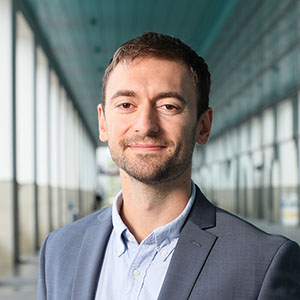 Dusan Licina was appointed Tenure Track Assistant Professor of Indoor Environmental Quality at EPFL.
Dusan Licina was appointed Tenure Track Assistant Professor of Indoor Environmental Quality at EPFL.Dusan Licina is a very promising young researcher who has already gained an outstanding international reputation. His research is centered on sustainable and healthy built environment, with emphasis on the following themes: air quality in buildings, ventilation systems, room air distribution, human exposure to airborne pollutants, the dynamics and fate of pollutants in buildings, thermal comfort, and energy efficiency. He completed a joint Doctorate degree at the National University of Singapore and the Technical University of Denmark. Before that, he completed his MSc and BSc degrees in mechanical engineering at the University of Belgrade. Recently, he was a postdoc at the University of California Berkeley, and then moved to New York to work on the development of the first rating system that focuses exclusively on the impacts of buildings on human health and wellness.
Dolaana Khovalyg’s research focuses on the development of energy-efficient heating, ventilation, and air-conditioning systems for buildings, the advancement of personalized control of the indoor environment, and the improvement of occupant comfort. Dolaana Khovalyg graduated with the highest distinction from the Moscow Power Engineering Institute (MPEI), undertook a PhD in Mechanical Engineering at the University of Illinois at Urbana-Champaign (UIUC), and was then a post-doctoral fellow at the Denmark Technical University (DTU) in Copenhagen.
Marc Vonlanthen studied physics and mathematics at the University of Fribourg. He then obtained his PhD in theoretical physics at the University of Geneva. After that, he joined a small firm in Bern called Meteotest. Meteotest is active in the fields of weather forecasting, climate, environment and informatics. Marc remained there for two years, leading wind energy and data analysis projects. Today, his research interests focus on energy transition and climate warming consequences and adaptation.
Dimitri Torregrossa obtained a PhD in electrical engineering in 2010 and a post-doc during 2012-2016 on the ageing of electrochemical storage devices at EPFL. Passionate about renewable energy and energy storage, in 2017 he joined the ENERGY Institute and focused his research activities on second-life battery storage. Over the past seven years, he has worked and collaborated with several industrial partners, such as Leclanché SA, Arts Energy, Nesscap, Maxwell, Romande Energie, and Services Industriels de Lausanne.
Anton Sentic is an early-stage researcher who has made his first post-PhD stop in Fribourg after studying at the University of Graz, Austria, where he focused on environmental management systems and repair and re-use in the context of waste management. He also attended the University of Greenwich in London, UK, where he undertook his PhD project, executing a transition studies analysis of combined heat and power technologies in the UK, focusing on internal structural and functional factors and external barriers influencing the development and dissemination of the technology. At the smart living lab, Anton’s research interests are twofold: a focus on the transition of energy systems towards more decentralized models and the development of innovative business models is complemented by his interest in the role of experimental innovation environments, such as a living lab, in broader transformative processes in socio-technical systems.
In 2009, Christian Ritzel secured his diploma in economics at the University of Kassel. Afterwards, he successfully completed a Master’s degree in Sustainable Economics and Management at the University of Kassel in 2013. He then conducted a doctoral thesis on “Agro-food trade with developing countries” at the Swiss Federal Research Institute Agroscope in Taenikon, in cooperation with the University of Hohenheim in Stuttgart. His intrinsic interest in the topic of sustainable development provided the motivation for his application to the iimt and the smart living lab project.
organization
A Joint Steering Committee handles strategic management of the smart living lab on behalf of all partner institutions and an Operational Committee is in charge of implementation. The Scientific Commission defines the academic plan. The Building 2050 group was responsible for the development of the research program that has resulted in a call for project proposals for the smart living lab’s future building, and will now support its implementation into the operational phase, which is being led by a team of senior architects. A further team is responsible for finding tangible uses for research findings.
promotional activities
events 2017
The smart living lab organized the following events in 2017:
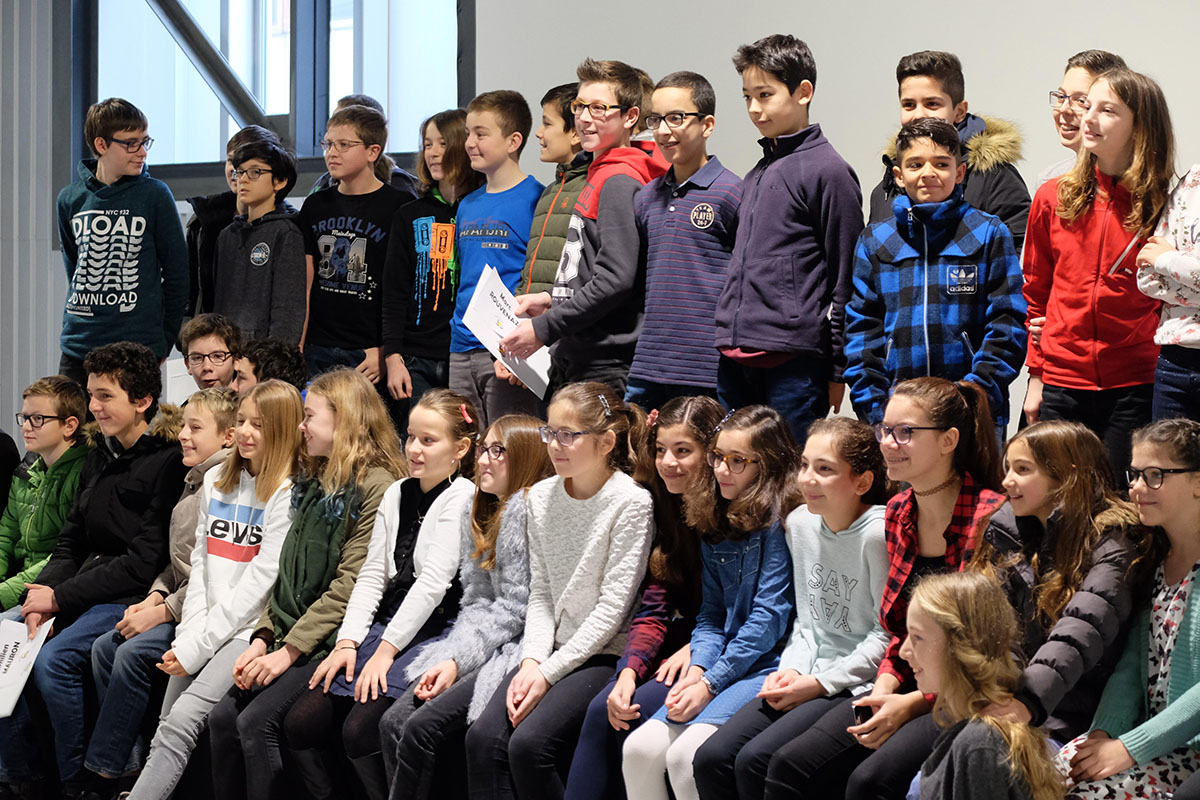
Robotic workshops & Award Ceremony, Fribourg © EPFL
The smart living lab also took part in the following events in 2017:
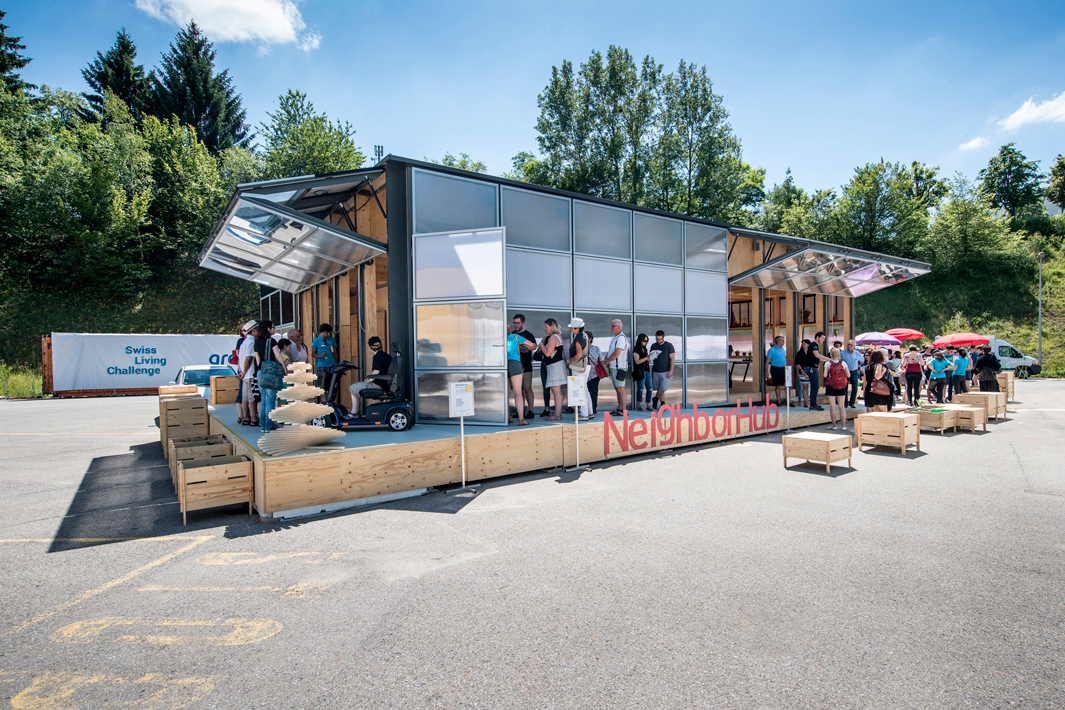
NeighborHub Open House Event, Fribourg © STEMUTZ
The smart living lunches were introduced in 2015 and have been designed for the smart living lab’s community. The following sessions took place in 2017:
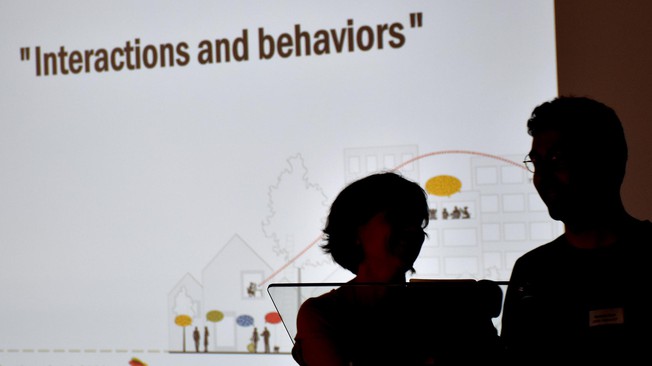
smart unconference: “Interactions and Behaviors”, Fribourg © smart living lab
media coverage
More about the NeighborHub’s media coverage.

The Swiss Living Challenge – About Success and Challenges © STEMUTZ
finances
smart living lab and EPFL Fribourg’s consolidated financial report
partners
Comprised of over 300 labs and research groups on its campus, the Swiss Federal Institute of Technology Lausanne (EPFL) is among the most productive and innovative research institutions worldwide. Ranked in the top three at European level and in the top 20 globally according to several scientific ranking lists, EPFL has drawn some of the best researchers in their fields. EPFL has a unique organizational structure designed to stimulate transdisciplinary research and encourage partnerships with other institutions.
Located in the heart of a bilingual region, culturally rich and ideally situated, the School of Engineering and Architecture (HEIA‐FR) trains future engineers and architects holding a Bachelor’s or Master’s degree from Swiss universities of applied sciences. This state-of-the-art school offers university-level training based on professional practice. Recognized by the public and local businesses for its many applied research activities, the school contributes to innovation activity and allows the Canton of Fribourg to project itself on both a technological and scientific level.
Founded in 1889, the University of Fribourg (UNIFR), is the only bilingual university in Switzerland and has a strong international tradition. It operates as a cutting-edge scientific and teaching center, with a strong human-centered approach that covers a wide range of disciplines in five different faculties. Nearly 10,000 Bachelor’s, Master’s, and PhD students benefit from its excellent infrastructure and its many educational opportunities.
It is worth mentioning that the smart living lab project is the first of its kind in Switzerland. It brings together knowledge from several institutions in a single location at the heart of a city. The project offers a unique infrastructure for the rapid transfer of key skills to the construction industry. For the Canton of Fribourg, whose construction industry is a major pillar, the presence of a center of national and international outreach reinforces its economic fabric by offering multiple new competitive advantages.


 Français
Français Deutsch
Deutsch
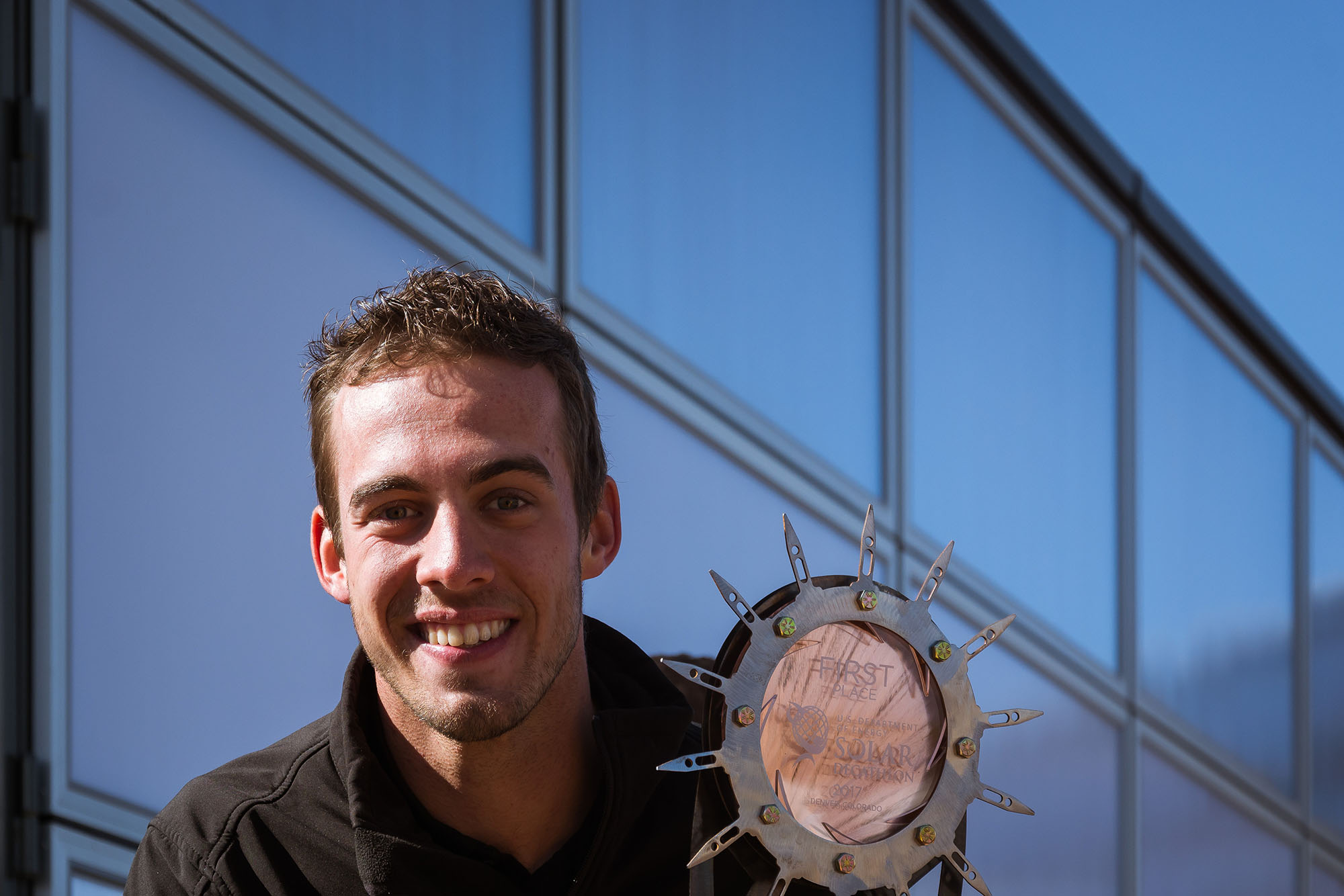
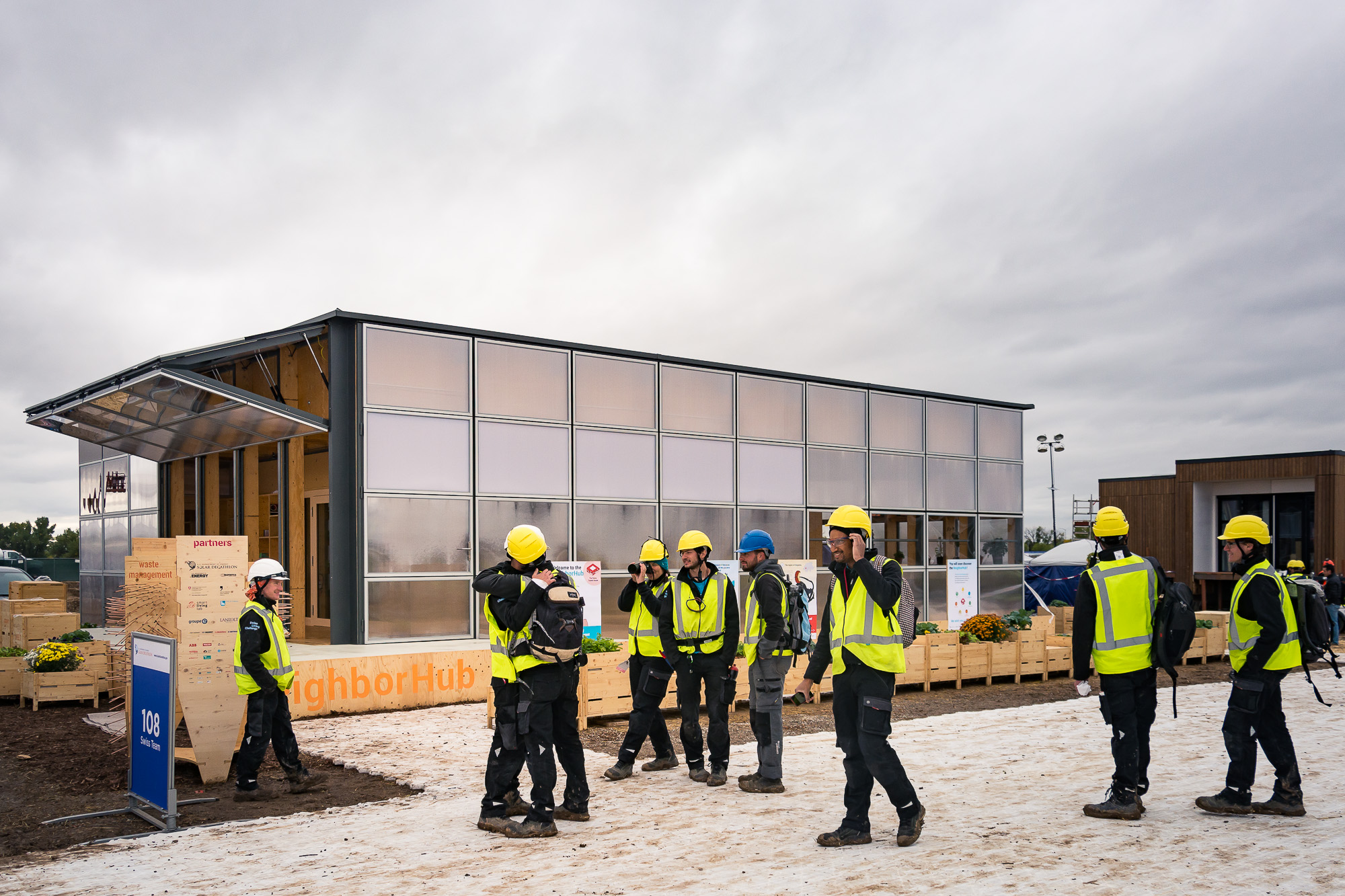
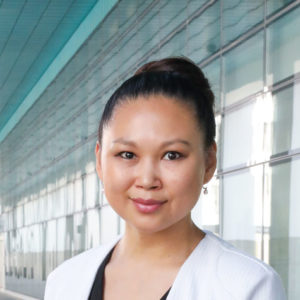 Dolaana Khovalyg was appointed Tenure Track Assistant Professor of Thermal Engineering for the Built Environment at EPFL.
Dolaana Khovalyg was appointed Tenure Track Assistant Professor of Thermal Engineering for the Built Environment at EPFL.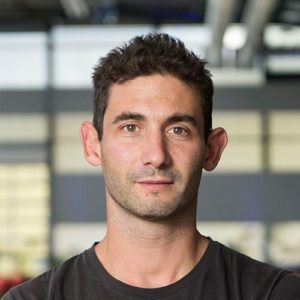 Marc Vonlanthen is a Professor at the School of Engineering and Architecture of Fribourg. He teaches physics and mathematics and is a member of the ENERGY Institute.
Marc Vonlanthen is a Professor at the School of Engineering and Architecture of Fribourg. He teaches physics and mathematics and is a member of the ENERGY Institute.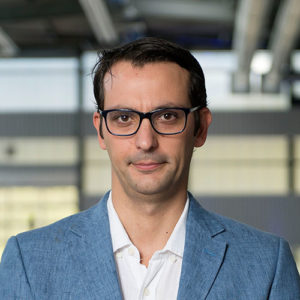 Dimitri Torregrossa has been a Senior Scientist at the ENERGY Institute of the School of Engineering and Architecture of Fribourg.
Dimitri Torregrossa has been a Senior Scientist at the ENERGY Institute of the School of Engineering and Architecture of Fribourg. Anton Sentic is a Senior Researcher at the international institute of management in technology (iimt) of the University of Fribourg.
Anton Sentic is a Senior Researcher at the international institute of management in technology (iimt) of the University of Fribourg. Christian Ritzel has been a Senior Researcher at the international institute of management in technology (iimt) of the University of Fribourg.
Christian Ritzel has been a Senior Researcher at the international institute of management in technology (iimt) of the University of Fribourg.
